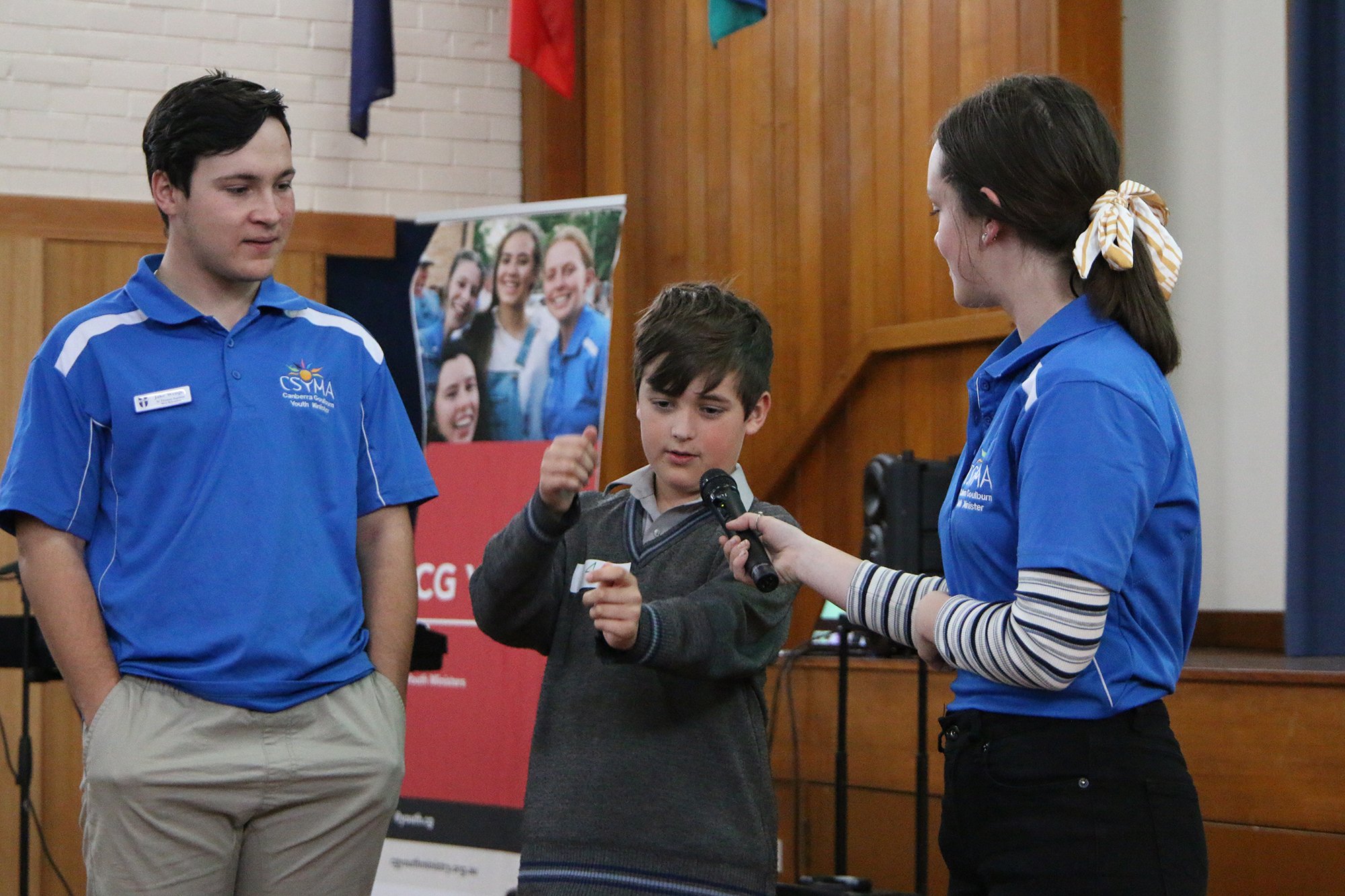About
Our Vision
Catholic Schools Youth Ministry International (CSYMI) has a vision to inspire, renew and equip Catholic schools as centres of evangelisation.
Our Aims
CSYMI has the following aims:
To help Catholic school leaders, staff and students develop and sustain a personal living relationship with Jesus and a strong Catholic identity through ongoing formation and participation in the life and mission of the Church.
To support the development of school faith-based formation and ministry programs, based on the Four-Phase Youth Ministry Model and leader and staff faith formation initiatives.
To develop a vision for a ministry of evangelisation as leaders, teachers and students, as an expression of a commitment to sharing the Gospel of Christ.
To foster solidarity amongst Catholic schools, through regional, diocesan, national and international formation networks, meetings programs and events.
To help build post-school youth ministry formation pathways that provide education and formation in faith.
Key Elements of Implementation
Catholic Schools Youth Ministry International (CSYMI) has a vision to renew Catholic schools as centres for evangelisation. CSYMI empowers and networks Catholic school leaders, teachers, and youth ministers to better fulfill the mission of evangelisation.
The three focus areas of CSYMI are:
Student Ministry: Junior Ministry and Youth Ministry
Youth Ministers: Post-School Youth Ministers Network
Spiritus Leaders Network: School and other Church Leader Formation.
Student Evangelisation
Implement the CSYMI Four-Phase Formation model. This model includes initial kerygmatic retreat experiences, ongoing education and formation opportunities integrated into the curriculum, the development of a senior youth ministry team and engagement with the broader Church. The CSYMI student curriculum pathway offers various programs to support the implementation of the Four-Phase Model, which can be adapted to suit a local context.
Cross-School Student Events
Support and participate in Shine and Lead (Secondary) and Illuminate (Primary) events that promote a positive Phase One kerygmatic experience. CSYMI also encourages involvement in similar Phase 1 activities offered in the Church.
Post-School Youth Ministers
Where possible, engage post-school youth ministers to help implement youth ministry programs. These ministers are trained at Youth Ministry Equipping Schools (open to senior student leaders).
Click here for further information.
Leader and Staff Formation:
Participate in leaders and staff formation through ACU Spiritus International, including Spiritus Programs and ongoing participation in the Spiritus Leaders Network, a collaboration between ACU La Salle Academy and CSYMI.
Click here for further information.
CSYMI Focus Areas
Student Ministry
Primary and Secondary
Youth Ministers
Post - School
Spiritus Leaders Network
School and Church Leaders
Where is CSYMI implemented?
CSYMI is being implemented in over 150 Catholic schools across Australia including primary and/or secondary schools of the Arch/dioceses of Adelaide, Ballarat, Bathurst, Broken Bay, Canberra and Goulburn, Darwin, Lismore, Melbourne, Parramatta, Rockhampton, Sandhurst, Toowoomba, Wagga Wagga and Wollongong.
CSYMI is now providing teacher and student formation programs and resources in East Africa, Oceania and The United Kingdom.
Governance & Leadership
The CSYMI Australia Board and CSYMI Council
Meet the CSYMI Council
Educational System Leadership
Development
The CSYMI network began in 2007. The original vision and program was developed by Peter Woods, a Catholic school teacher at St Edmund’s College in Canberra.
The student program was the result of a desire to offer further formation opportunities to complement Religious Education classes following a positive senior student retreat experience. Some of the students wanted to continue in formation and outreach and so a senior youth ministry team was formed. Integrating students into the broader Church beyond school also became an important focus. This became known as the CSYMI Four - Phase Model.
Leader and teacher formation is also integral to CSYMI. The first national staff formation conference was held at Marist College Canberra in 2009. The SPIRITUS Leaders International Network (SILN) now offers ongoing formation programs, resources and certification to over a thousand members.
CSYMI was approved by the Australian Catholic Bishops Conference (ACBC) Commission for Mission and Faith Formation as a national post - World Youth Day Sydney 2008 work for the Australian Church. CSYMI’s national partner is the Australian Catholic University’s La Salle Academy.
The story of the development of CSYMI is told in Waves of Grace: Evangelisation in Catholic Schools (2024) The book explores how the Catholic Church can connect powerfully with young people through the evangelising mission of the Catholic school. Click here to purchase paper back or ebook.
Phases of Development
The four phases of implementation of the CSYMI vision for a local member country, include Connection, Establishment, Focus Area Plans, and Growing Youth Ministry. The phases involve building relationships, establishing leadership structures, developing key documents and plans, introducing CSYMI models of formation and mission, and growing youth ministry.














